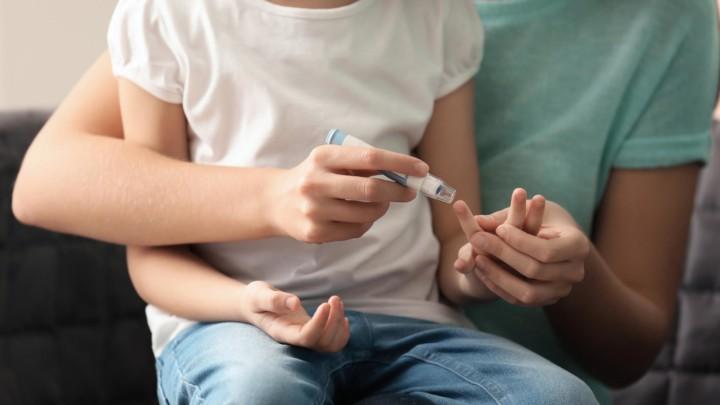
A research project is studying the open dialogue treatment model, in which the young person suffering from a mental health crisis receives immediate help without the need for referrals and long doctor’s waiting lists. “Sometimes having to define things precisely in advance for data permit applications makes it difficult to carry out research,” says Tomi Bergström, Postdoctoral Researcher at the University of Jyväskylä.
Mental health work for children and young people is in crisis. According to the World Health Organisation (WHO), the life expectancy of people with severe mental health problems is up to 20 years shorter than that of the rest of the population. Many users of mental health services are unable to work.
“Mental health services need reorganising. The mental health problems of young people are not just about symptom clusters, but often about natural reactions to the challenges of life,” says Tomi Bergström, a researcher at the University of Jyväskylä and a psychologist working in the Western Ostrobothnia Hospital District.
He heads up a research project run by the University of Jyväskylä and the Western Ostrobothnia Hospital District which is assessing the impact of open dialogue-based youth psychiatric care in comparison to conventional care.
The open dialogue treatment model is a treatment method developed in Finland in which a person’s psychological crisis is immediately addressed. Instead of waiting weeks for a doctor’s visit and a diagnosis, the patient can receive treatment at home immediately. The treatment model emphasizes equality-based discussion. Its goal is to build a common understanding between the person, their local network and the healthcare professionals of the difficult life situation that the person is facing.

“Findata’s customer service was first-class. At times, we worked together on pondering and specifying the definitions for data extraction, so the service was surprisingly well customised,” says Tomi Bergström, Postdoctoral Researcher at the University of Jyväskylä.
People with mental health problems should be treated as human beings, not simply as diagnosis clusters
In 2020, a register monitoring project was launched to study the results of adolescent psychiatry treatments implemented using the principles of open dialogue. The aim of the project is to find out how the patient benefits in the long term from being treated based on their particular situation, not on a medical diagnosis.
The project examines young people aged 13–20 living in Western Ostrobothnia who received psychiatric treatment for the first time. The people studied used the services between 2003 and 2008. Their data is being compared with young people who have used mental health services elsewhere in Finland based on the same criteria. The follow-up period is either ten years from the start of treatment or up to when the patient dies.
“Our hypothesis is that by the end of the follow-up period, those who have received open-dialogue treatment will be doing better than those who have received normal treatment. We are monitoring variables such as mortality and work capacity,” Bergström explains
Findata receives praise for its good service
In order to access young people’s data, a precisely-defined data permit application has to be submitted for accessing several different registers. The registers indicate, for example, how much disability benefit has been paid to a person or how many days they have spent in a hospital during the follow-up period.
Tomi Bergström was responsible for the project’s data permit application. He submitted it for the Finnish Institute for Health and Welfare’s Care Register for Health Care, Register of Livelihoods and Register of Child Welfare and for Statistics Finland’s Cause of Death Register. In addition, the researchers are examining Kela’s data on the purchase of medicines, daily sickness allowances and pensions.
Bergström had done register research before, so collecting data from data controllers was a familiar activity for him. At first, he was horrified when Findata stepped in and the application process changed. Since then, however, his thoughts have developed somewhat.
“Findata’s customer service was first-class. At times, we worked together on pondering and specifying the definitions for data extraction, so the service was surprisingly well customised,” Bergström summarises.
Reflections on the Secondary Use Act
The cooperation with Findata went smoothly, but the Secondary Use Act underlying the authority’s work is confusing for Tomi Bergström. The Secondary Use Act regulates the secondary use of health and social data in areas such as register research.
In Bergström’s opinion, the Act is justified from the point of view of research data protection. It is important that the use of the data is monitored. The Secondary Use Act and the centralised services are, in Bergström’s view, well suited for larger projects such as register monitoring for open dialogue treatment.
He also believes, however, that the Secondary Use Act hampers research-driven work in which all the variables and hypotheses are not known in advance.
“Determining things precisely in advance is an obstacle to grassroots research, which aims to challenge the status quo and which may not have funding. This kind of new, hypothesis-generating research is the lifeblood of scientific activity.”
Researcher’s tip for those applying for a data permit
“If you are doing registry research for the first time, make use of the data catalogue . It is possible to use your own keywords to search for variables relevant to your research. At the same time, you can find the correct register and the correct name of the variable for use in the permit application.”
– Tomi Bergström, Postdoctoral Researcher at the University of Jyväskylä
Read more
What is Findata?
- Findata is a one-stop shop for the secondary use of Finnish social and health care data, operational since 2020. Its operations are based on the Act on Secondary Use of Social and Health Data, which entered into force in 2019.
- Findata grants data permits for the use of data for example scientific research, statistics and planning and reporting duty of an authority.
- Its aim is to improve the data security and protection of social and health care data and enable their effective use.
- Findata operates in conjuction with the Finnish Institute for Health and Welfare THL, separate from THL’s other activities.
This article is the first part of the Datasta tutkimukseen (From data to research) article series published by Findata that sheds light on Findata’s activities and the changes brought about by the Act on Secondary Use. In the series, we showcase studies that utilise data available through Findata.


